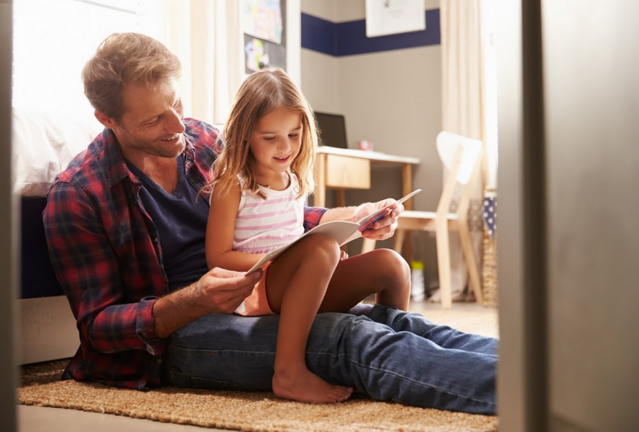Parenting
Children With Special Needs Need Special Parents
Allow your children to teach you.
Posted September 23, 2016

My wife and I are sitting at our kitchen table with a friend and colleague of mine who came to our house to give us feedback about the testing she did with our oldest who was in 1st grade. At the end of pre-school, her veteran teacher told us that she wasn’t picking up her letters and numbers as expected. She thought we should get her tested.
As a child psychologist who tested kids regularly, I told my wife the teacher was over-reacting and that our daughter was slow to acquire these developmental skills and would be fine. By the end of kindergarten, I had an uncomfortable feeling that the teacher was right. She wasn’t picking up numbers and letters as was expected, she was anxious, and she was starting to not like school.
My friend showed us the testing data. My stomach began to turn and I felt a bit light headed. I was hearing my friend say all the things that I have been telling parents for years – behind in letter recognition, slow processing, doesn’t know math facts, poor spelling, auditory processing weaknesses, and trouble with executive-functioning. My eyes were welling up. I looked at my wife and hers were doing the same.
How did this happen? Why was my daughter struggling? What is going to happen to her? Will she be okay? What are we going to do? How can we fix this? Will she be happy and successful? These thoughts raced through my mind. I think I stopped listening to my friend. I had heard enough. I was in pain. I was worrying about my child and her future.
Our journey began, but did it really? My wife had pre-term labor, was on bed rest, and had a stressful delivery. Our daughter arrived early, had trouble feeding and trouble being soothed and falling and staying asleep. She was sensitive, intense, and strong-minded. We hit parenting from the ground running.
Parenting in general is hard these days. Parenting a child with special needs is often harder. Parents inherently worry about their children and parents of kids with special needs have additional reasons to worry.
Will they learn to read and write? Will they be able to do math? Will they learn how to manage their feelings and behavior? Will they make friends? Will they go to college? Will they get a good job? Will they be able to live on their own and take care of themselves? Will they be happy and be successful?
In an instant I became one of my clients – a worried and stressed out parent who wanted his child to be happy and have a meaningful life. Now there was more to worry about – tutors, assessment, treatment, and Individualized Education Programs (IEPs). We found ourselves riding the waves of our daughter’s struggles. How did she do today? How did she act? Did she have someone to play with?
As someone who is good at worrying and focusing on his children, I am here to tell you that focusing on yourself is one of the best things that you can do for your child. Our children need to see us living and engaging in our own lives. They need us to give them space and they need us NOT worrying about them. Through this process I have learned that I need to be aware of the difference between my feelings and my child’s feelings. I need to make sure I don’t project my feelings on to them.
In order to do this, I needed to ask myself, and be truthful about, my greatest worries and concerns. I needed to become aware of how my worries and concerns were driving my behavior. I needed to look at my expectations for my child and her future and examine whether they were my expectations, those set by my parents, or those set by our community.
By becoming aware of my feelings and expectations for my child, I was able to understand and question my belief system about what it means to be a good parent and what I really wanted for my child. I do not have things solved and I certainly have not figured it out. What I can say is that it is okay and normal to worry about our children who struggle, and it is critically important to be aware of when we are worrying and what we choose to say to them and show them.
I am still on this parenting journey and from what I am told (and see every day in my practice), it will never end. From one parent to another - take the time to check in with yourself, allow yourself to pursue your own interests and passions, show your children how to live a meaningful life.
Our children are our greatest teachers. And if we allow them to teach us then we are giving them the greatest gift of all -- the space and support to create their own paths and leave their own footprints.
# # #
All Images: Parent Footprint Shutterstock photo / Used with permission





